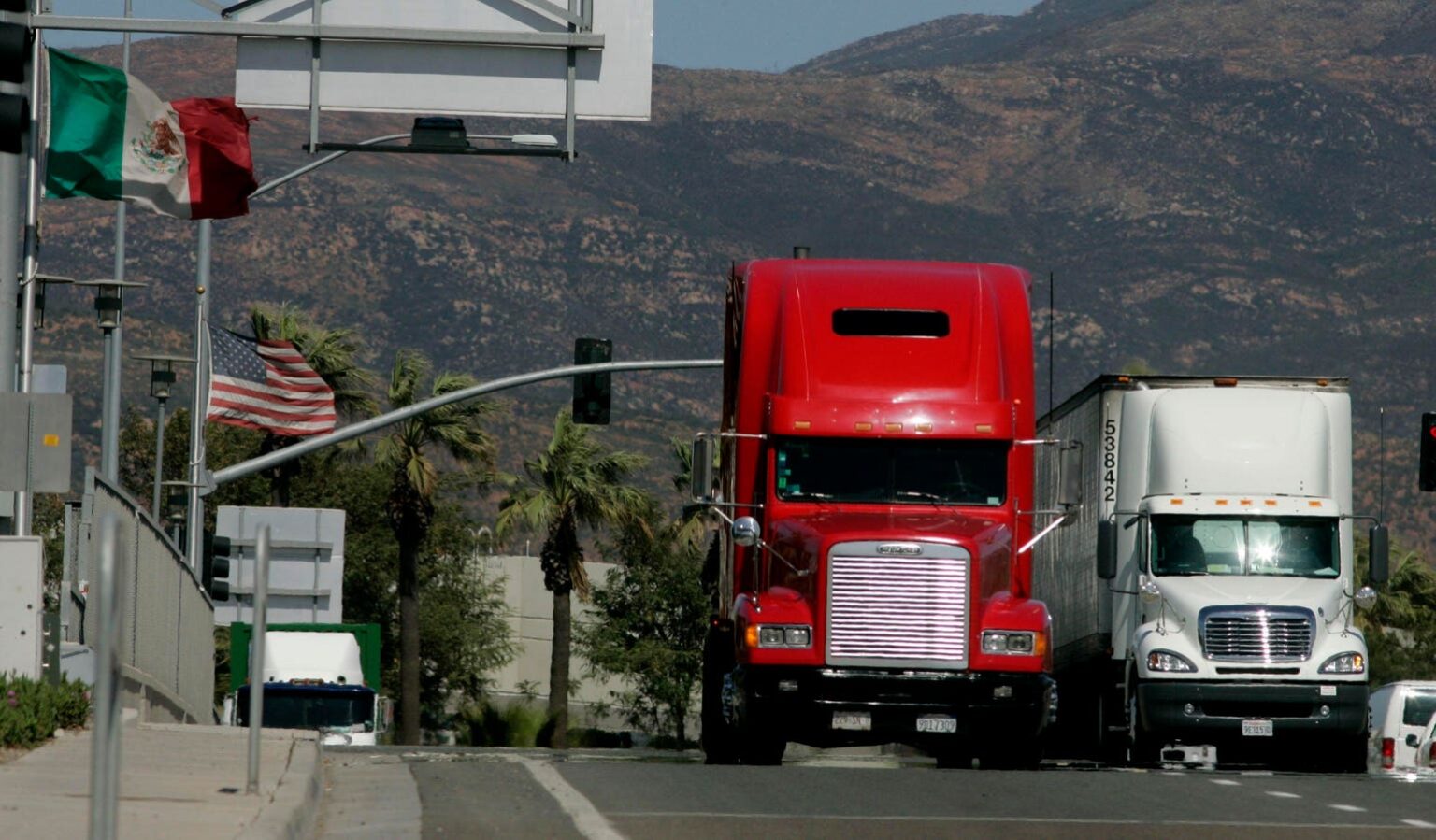Donald Trump has been pushing the idea of relying on tariffs during the recent campaign as he did in his first term. Now, the president-elect’s plans are getting more definite as he announced that, on day one of returning to office, he would by executive order institute a 25% tariff on goods from Mexico and Canada — the first and second largest U.S. trade partners — until those countries somehow stopped cross-border movement of drugs and migrants. This could be a serious economic problem.
“This Tariff will remain in effect until such time as Drugs, in particular Fentanyl, and all Illegal Aliens stop this Invasion of our Country!” Trump wrote on Truth Social, according to the New York Times. “Both Mexico and Canada have the absolute right and power to easily solve this long simmering problem. We hereby demand that they use this power, and until such time that they do, it is time for them to pay a very big price!”
Trump separately announced a 35% tariff on China, which is the United States’ third-largest trade partner.
If you thought that inflation was steadily dropping from the high year-over-year rate of about 9% in June 2022 to 2.6% in October, you were right. And if Trump holds to his public announcement when he’s in office, then your experience is about to get worse.
First, let’s remove the thought that he wouldn’t have the legal right to set tariff levels. He will, write former general counsel to the Office of the U.S. Trade Representative Warren Maruyama, international trade and investment law attorney Lyric Galvin, and William Alan Reinsch at the Center for Strategic and International Studies. The same laws Congress has passed over the years that gave Trump cover for hiking tariffs before will do the same again.
Trump loves tariffs. He badly misrepresents them, typically claiming that the costs are put on the exporting countries. That is as absurd as saying that Mexico was going to pay for a wall at the border.
Tariffs are paid by the importer/receiver, not the exporter/sender, and then added to the costs of final goods that companies and people pay. Tariffs are additional costs to receive important imposed on materials, assemblies, and goods. They are a form of regression taxation, meaning there is no differentiation in the cost to taxpayers based on income. Everybody gets hit and those with the least money feel the impact most. Many millions of people pull back on buying because they already can’t afford it because the previous inflation remains as higher prices and for most of the country, wages never kept up.
The impacts spread beyond consumer purchasing. They make it harder for U.S. companies to stay in business and compete internationally. When companies are hurting, they will pull back their investments of all sorts, including personnel.
It’s the makings of a recession that could overturn all the work that’s been done to get inflation in hand while maintaining reasonable economic growth and solid labor markets.
The tariffs are also likely a breach of the trade negotiations done under Trump. That tells countries that they can’t trust doing business with the U.S. Some might think that is immaterial, as the U.S. is strong enough to have its way. Not necessarily. Years ago, the CEO of a small company talked of doing business with a huge retailer that tried to throw its weight around and demand ongoing cuts in prices and increased numbers of hoops to leap through. The company, makers of some popular product lines, said no and walked away. It finally wasn’t worth their time. The retailer tried outsourcing to China. The goods often had problems and needed to be returned. The big retailer had to go back to the small vendor and give in.
You can’t always get your own way, and eventually, if you keep twisting arms, everyone will walk away.
Read the full article here

